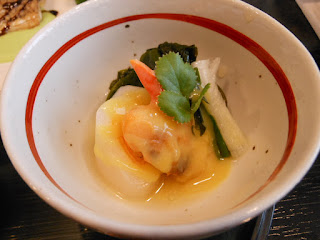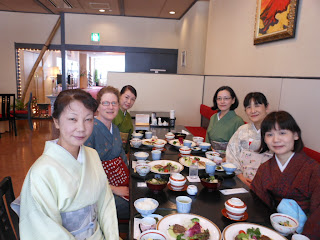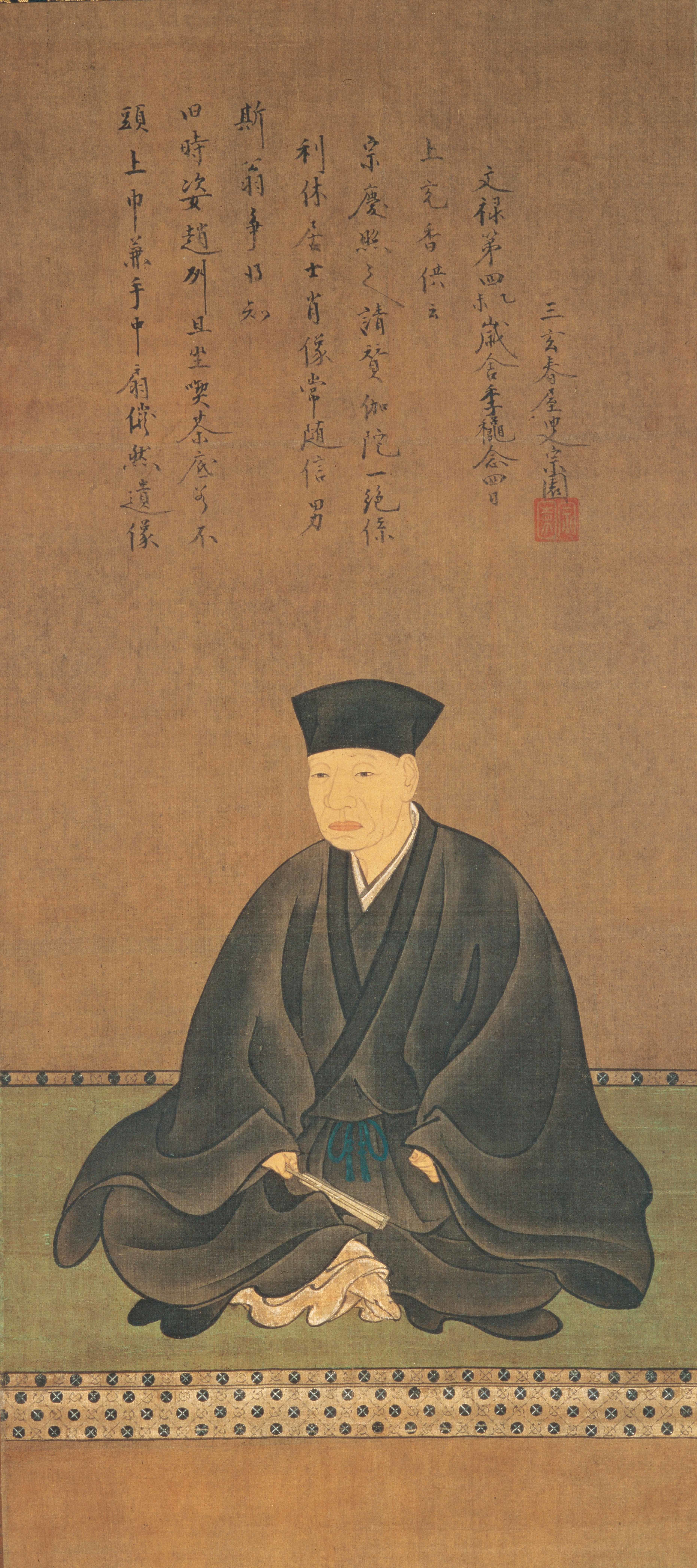Sen no Rikyū (千利休, 1522 - April 21, 1591, also known simply as Sen Rikyū), is considered the historical figure with the most profound influence on chanoyu, the Japanese "Way of Tea", particularly the tradition of wabi-cha. He was also the first to emphasize several key aspects of the ceremony, including rustic simplicity, directness of approach and honesty of self. Originating from the Edo Period and the Muromachi Period, these aspects of the tea ceremony persist.[1] Rikyū is known by many names; for convenience this article will refer to him as Rikyū throughout.
There are three iemoto (sōke), or "head houses" of the Japanese Way of Tea, that are directly descended from Rikyū: the Omotesenke, Urasenke, and Mushakōjisenke, all three of which are dedicated to passing forward the teachings of their mutual family founder, Rikyū.
Although Rikyū had been one of Hideyoshi's closest confidants, because of crucial differences of opinion and other reasons which remain uncertain, Hideyoshi ordered him to commit ritual suicide. In The 48 Laws of Power, American author Robert Greene states that Hideyoshi was enraged by Rikyū's commissioning of a vain statue of himself which was placed inside the palace gates, through which Hideyoshi entered, thus putting himself below Rikyū.[13] While Hideyoshi's reason may never be known for certain, it is known that Rikyū committed seppuku at his residence within Hideyoshi's Jurakudai villa in Kyoto in 1591 on the 28th day of the 2nd month (of the traditional Japanese lunar calendar; or April 21 when calculated according to the modern Gregorian calendar), at the age of seventy.[3][14]
According to Okakura Kakuzo in The Book of Tea, Rikyū's last act was to hold an exquisite tea ceremony. After serving all his guests, he presented each piece of the tea-equipage for their inspection, along with an exquisite kakemono, which Okakura described as "a wonderful writing by an ancient monk dealing with the evanescence of all things." Rikyū presented each of his guests with a piece of the equipment as a souvenir, with the exception of the bowl, which he shattered, uttering "Never again shall this cup, polluted by the lips of misfortune, be used by man." As the guests departed, one remained to serve as witness to Rikyū's death. Rikyū's last words, which he wrote down as a death poem, were in verse, addressed to the dagger with which he took his own life:
- Welcome to thee,
- O sword of eternity!
- Through Buddha
- And through Daruma alike
- Thou hast cleft thy way.[15]
Rikyū's grave is located at Jukōin temple in the Daitoku-ji compound in Kyoto; his posthumous Buddhist name is Fushin'an Rikyū Sōeki Koji.
(from Wikipedia)
* * * * * * * * * * * *
Every year on the anniversary of his death there is a special tea ceremony held at one of the temples in Teramachi (Temple Town). It's a temple I sometimes wander around in because it has a beautiful garden and I love the bell. Some of the early sakura are already blooming and in another couple of weeks they should all be in full bloom.

 |
 |
| These sweets matched a wall hanging in the waiting room. The green and yellow is nanohana (rape) (made of anko - sweet bean paste) and the sugar candies are butterflies. |
 |
| People admiring the tea implements, the water kettle and special charcoal. |
 |
| The character says 'Yume' = Dream |



 |
| My obi. |
Afterwards we all went to lunch - beautiful and delicious!
 |
| Tai (sea bream) with a foam sauce and vegetables. Really good!!! |
 |
| Daikon (radish) wtih shrimp (?) inside, in a mustard miso sauce. |
 |
| Simple but my favorite - enoki mushrooms in a ponzu sauce with radish. |
 |
| Of course rice and pickles. |
 |
| Soba noodles made with green tea. |
 |
| The noodles were served with wakame (seaweed) and grated radish. |
 |
| Chawan mushi - steamed egg custard. |
 |
| Dessert. |
 |
| Notice the hankies tucked into our obis. They don't use napkins in Japan. So this is a little (traditional I think) protection. |

These are some things that are given by family and displayed at weddings.







No comments:
Post a Comment